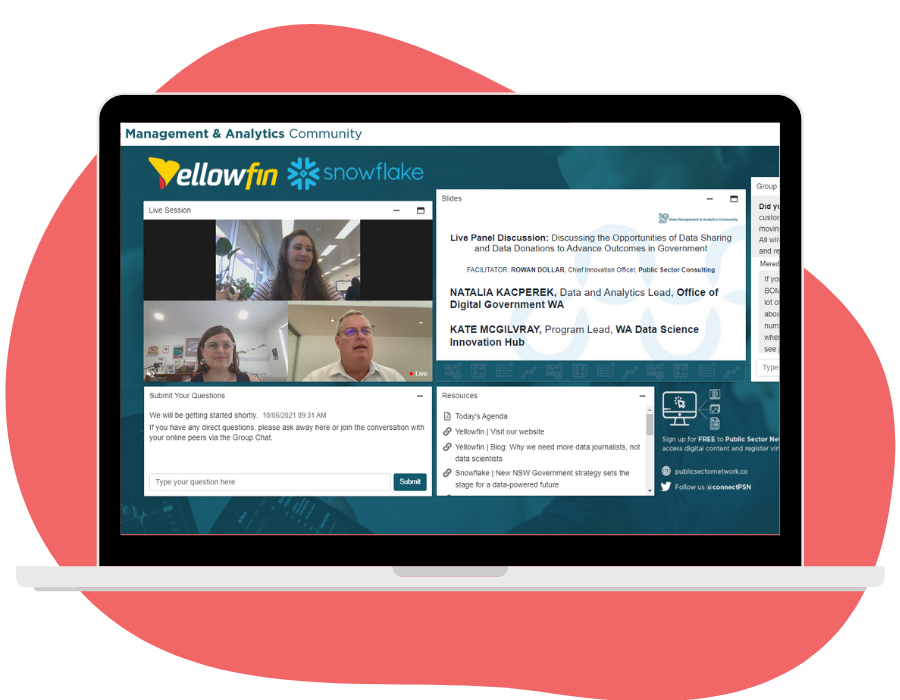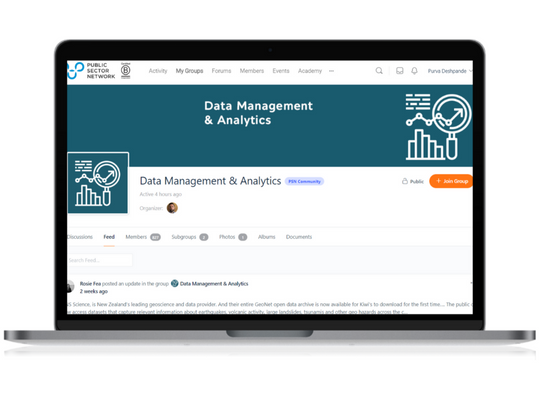
Artificial Intelligence and Machine Learning in Government
Thursday, 26 October & 2 November | 10:00 AM – 2:30 PM AEDT | Online
Training Overview
Creating a Roadmap and Addressing the Challenges of Operationalising AI
AI presents the Public Sector with an opportunity to completely reimagine how you deliver, plan and strategise. Despite this untapped potential the application of AI in government still falls behind the transformation that seen in the private sector.
A recent EY survey commissioned by Microsoft found that AI is a digital priority for government – but only 4% of agencies surveyed had managed to scale its use to achieve real transformation in services.
There are several barriers: Cultural resistance, the effort, skills and resources to ensure AI adoption isn’t just successful but is sustainable, repeatable and scalable. This course has been developed to tackle these barriers. It will provide participants with tools and insights to operationalise and scale AI and ML for your organisation. It will shed light on the challenges that you will face and discuss strategies to mitigate them.
You will leave the course will allow you to envisage the future state, assess your current state and come up with a roadmap on how to get there. It will enable you to assess information, data, people, process and technology to plan your next steps.

Who Should Attend
This course is designed for heads, directors, assistant directors, managers, and team leaders in charged with driving transformation change in all three levels of government including:
Data and Analytics
Information Management
Information Architecture
Learning Outcomes
Understand the role of AI in fueling innovation and economic growth in organisations and the broader economy.
Differentiate and understand the interplay between AI, ML, and Data Science.
Explore the strategic advantages of implementing AI in government.
Recognise the risks associated with AI and take necessary steps to mitigate them.
Meet Your Facilitators

Nigel Schmalkuche
Managing Director Principal Consultant
Strategic Architects
Nigel is a leader in strategy, data, cloud, enterprise, and business architecture and has guided Queensland State and Local Government, private organisations and non-profit organisations through digital business transformation. He has held various professional and leadership roles in ICT and Enterprise Architecture in Queensland State and Local Government.
He is a results-oriented business and ICT professional with 30 years’ experience in the fields of energy, education, elections, finance, health care, housing, legal, mining, manufacturing, news and media, pharmaceutical, policing, racing, transport and utilities.
Nigel has many years of experience as a Coach in his business, Coaching Enterprise Architects, and has facilitated training courses on Enterprise, Business and Data Architecture primarily concentrating on government.
Key Sessions
An Introduction to AI and ML
- What is AI and ML
- Key terms and definitions
- The differences between AI and ML
- Understanding how they are inter-related and interact with each other
- Will AI take our jobs?
- The jobs that are ripe for automation
- The jobs that AI will enhance and augment
- New jobs
- How to be prepared
Application of AI
- Exploring the impact of AI and ML in Forecasting and Planning
- The role of AI and ML in forecasting
- A checklist
- Anticipating challenges and discussing solutions
Building Capability and Operationalising AI
- Creating a Roadmap for AI adoption
- Making sense of your organisation’s analytics capability and maturity
- Plotting a roadmap from business strategy to data science realisation
- Understanding of what makes organisations do data science and machine learning right
- Data quality, governance and literacy
- Key Elements for successful AI adoption in your organisation
- Elements of a successful RPA program
- Need for an AI strategy
- Essential skills for AI success
- Involving the workforce in identifying process improvements
The Risks and Future of AI
- The risks of AI and strategies to mitigate them
- Addressing bias and discrimination
- Privacy, ethics and data security
- Strategies and steps to mitigate these risks
- The Future of AI
- Exploring the risks and benefits of generative AI
- The impact of Deep Learning and Neural Networks
Registration
Final Price
$1,195
per person + GST
Interested In Learning More?

